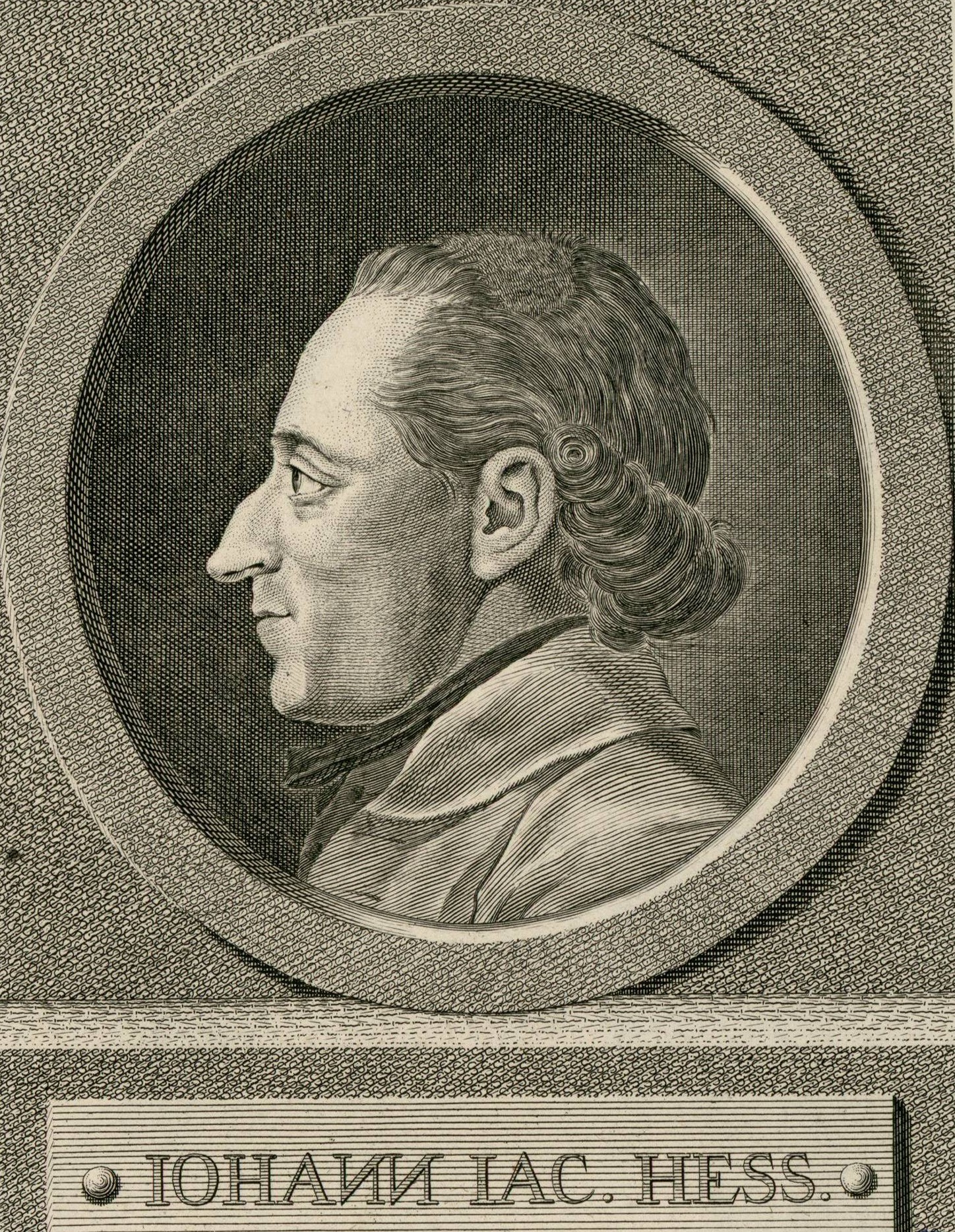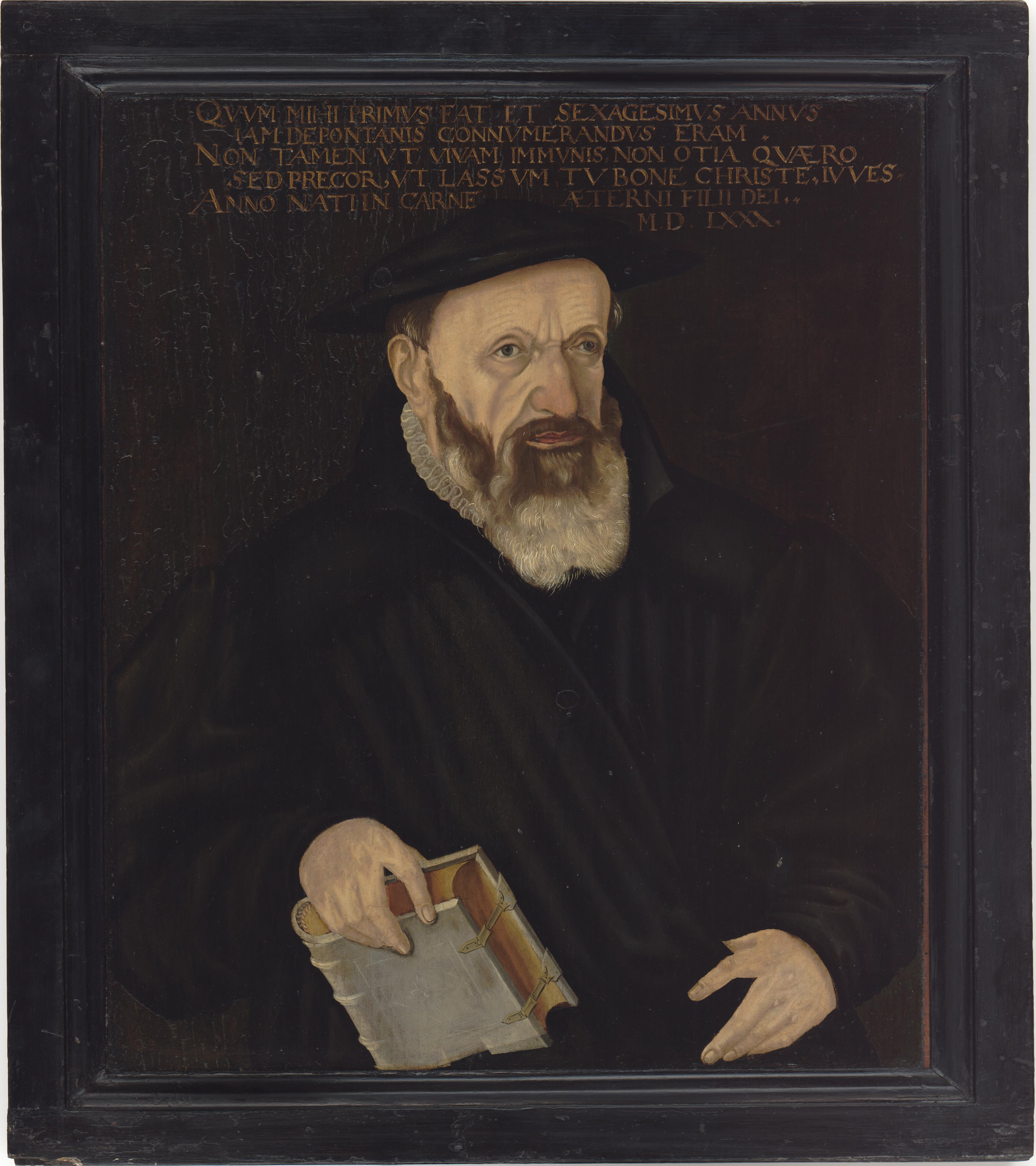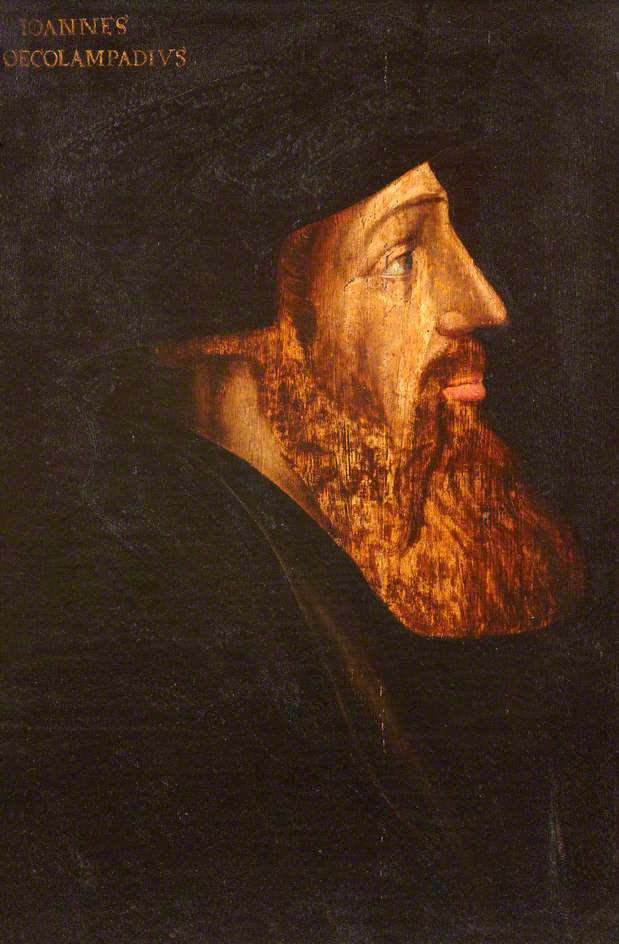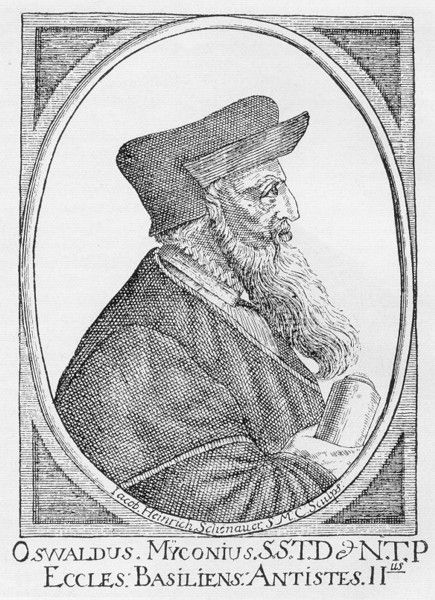|
Antistes
Antistes (from Latin ''ante'' "before" and ''sto'' "stand") was from the sixteenth to the nineteenth century the title of the head of a church in the Reformed Churches in Switzerland. It was the highest office in churches with synodal church governance. The word was used first in 1525 as an unofficial title of honor for Huldrych Zwingli in Zurich, then in 1530 for Johannes Oecolampadius in Basel and in 1532 for Heinrich Bullinger in Zurich. The antistes was elected by the great council (the parliament) of the city and also held besides this office a pastorship of one of the main churches. The antistes had to be an ordained minister. He was the official representative of the church. He presided over the synod, and over the theological examinations of candidates for the office of pastor. His direct rights were very limited, but a man with high leadership capabilities like Zwingli or Bullinger could exert a great influence on the church in this office. In the late nineteenth c ... [...More Info...] [...Related Items...] OR: [Wikipedia] [Google] [Baidu] |
Antistes Of Zurich
Antistes (from Latin ''ante'' "before" and ''sto'' "stand") was from the sixteenth to the nineteenth century the title of the head of a church in the Reformed Churches in Switzerland. It was the highest office in churches with synodal church governance. The word was used first in 1525 as an unofficial title of honor for Huldrych Zwingli in Zurich, then in 1530 for Johannes Oecolampadius in Basel and in 1532 for Heinrich Bullinger in Zurich. The antistes was elected by the great council (the parliament) of the city and also held besides this office a pastorship of one of the main churches. The antistes had to be an ordained minister. He was the official representative of the church. He presided over the synod, and over the theological examinations of candidates for the office of pastor. His direct rights were very limited, but a man with high leadership capabilities like Zwingli or Bullinger could exert a great influence on the church in this office. In the late nineteenth c ... [...More Info...] [...Related Items...] OR: [Wikipedia] [Google] [Baidu] |
Johann Jakob Breitinger (Antistes)
Johann Jakob Breitinger (19 April 1575 in Zürich - 1 April 1645) was a Reformed pastor in Zürich, professor, antistes and politician. Johann Jakob Breitinger studied in Herborn, Marburg, Franeker, Leiden, Heidelberg und Basel. He was a pastor in Zumikon, Albisrieden and then Professor of Logic and Rhetoric at the Collegium Humanitatis. Afterwards pastor to St. Peter, the Grosse Rat (parliament of the city) elected him in 1613 to pastor at the Grossmünster and thus to the Antistes of the Zürich Church. As the sixth successor to Zwingli in the leadership of the Zürich Church, he introduced a day of prayer and was known for his sermons, in which he reprimanded foreign military service, bribery, buying offices and national debt. He demanded the improvement of discipline and custom among the people and a ban on the theater. He promoted elementary school, Sunday children's teaching and church singing in town and country and campaigned for poor relief and welfare. On behalf of th ... [...More Info...] [...Related Items...] OR: [Wikipedia] [Google] [Baidu] |
Johann Jacob Hess
Johann Jacob Hess (or Johann Jakob Hess) (21 October 1741 in Zürich - 29 May 1828 in Zürich) was a Protestant Swiss theologian and clergyman. Life Hess's father was the town clock maker Salomon Hess. He studied from 1755 to 1760 in Collegium Carolinum Zürich, followed by his ordination as ' In 1767 he married Anna Maria Schinz from Embrach, in 1777 he was appointed deacon of Fraumünster, in 1795 rector und Antistes of the clergy of the Canton of Zürich. He is known as the pioneer of literature of the quest for the historical Jesus through his ''Geschichte der drei letzten Lebensjahre Jesu'' (Zürich 1768) and ''Lebensgeschichte Jesu'' (8th edition, 1823). Posthumously published was his ''Briefe über die Offenbarung Johannis'' (Zürich 1844). Works * Meine Bibel. Ein Gesang. Freunden d. Bibelanstalten gewiedmet von Johann Jakob Heß. 2.,hdl..rm. u. verb. Auflage. Zürich: Orell, Füßli u. Co., 1821. * Geschichte und Schriften der Apostel Jesu. Von dem Verfasser der G ... [...More Info...] [...Related Items...] OR: [Wikipedia] [Google] [Baidu] |
Simon Sulzer
Simon Sulzer (23 September 1508 – 22 June 1585) was a Reformed theologian, Reformer, and Antistes of the Basel church. Life Sulzer was born in Schattenhalb, the child of a priest. He was educated in Bern and Lucerne. The sudden death of his father, the provost of Interlaken, forced him to turn to manual labor to support himself. He worked as a barber in Strasbourg and attended lectures by Martin Bucer and Wolfgang Capito. He moved to Basel in 1531, where he associated with Simon Grynaeus. Here he worked as a proofreader at the print shop of Johann Heerwagen and was also employed as a teacher. From 1533 he worked in Bern in education and proved his worth in the schools. On the initiative of the Bern town council, he pursued additional studies in 1537 and took a master's degree. As a supporter of the Wittenberg Concord, he was in Wittenberg in 1536 and was greatly impressed by Martin Luther, as he revealed to his friend Joachim Vadianus. He blamed the disagreement with Luth ... [...More Info...] [...Related Items...] OR: [Wikipedia] [Google] [Baidu] |
Rudolph Gualther
Rudolf Gwalther (1519–1586) was a Reformed pastor and Protestant reformer who succeeded Heinrich Bullinger as Antistes of the Zurich church. Life Gwalther was born the son of a carpenter, who died when he was young. Heinrich Bullinger assumed responsibility for Gwalther's upbringing. He attended schools in Kappel, Basel, Strasbourg, Lausanne and Marburg and studied mathematics and poetry in addition to theology. He learned French and Italian in Lausanne. Landgrave Philip of Hesse brought the gifted student along to the Regensburg Colloquy in 1541. When he returned to Zurich, he received the pastorate of St Peter's Church to replace Leo Jud. He married Huldrych Zwingli’s daughter Regula (1524–1565). He was an inspiring and popular preacher. His sermons and biblical commentaries have been frequently printed and widely read. As Zwingli’s son-in-law, he sought to preserve the great reformer's heritage and remained true to his theological orientation. Gwalther's Latin ... [...More Info...] [...Related Items...] OR: [Wikipedia] [Google] [Baidu] |
Johann Jakob Grynaeus
Johann Jakob Grynaeus or Gryner (October 1, 1540 – August 13, 1617) was a Swiss Protestant divine. Life Grynaeus was born in Bern. His father, Thomas Grynaeus (1512–1564), was for a time professor of ancient languages at Basel and Bern, but afterwards became pastor of Röteln in Baden. He was nephew of the eminent Humanist Simon Grynaeus. Johann was educated at Basel, and in 1559 received an appointment as curate to his father. In 1563 he proceeded to Tübingen for the purpose of completing his theological studies, and in 1565 he returned to Rötteln as successor to his father. Here he felt compelled to abjure the Lutheran doctrine of the Lord's Supper, and to renounce the Formula of Concord. Called in 1575 to the chair of Old Testament exegesis at Basel, he became involved in unpleasant controversy with Simon Sulzer and other champions of Lutheran orthodoxy; and in 1584 he was glad to accept an invitation to assist in the restoration of the University of Heidelberg. Returni ... [...More Info...] [...Related Items...] OR: [Wikipedia] [Google] [Baidu] |
Ludwig Lavater
Ludwig Lavater (4 March 1527; Kyburg (castle) – 5 July 1586 in Zurich) was a Swiss Reformed theologian working in the circle of his father-in-law, Heinrich Bullinger. He served as Archdeacon at the Grossmünster in Zurich and briefly Antistes of the Zurich church as the successor of Rudolf Gwalther. Lavater was a prolific author, composing homilies, commentaries, a survey of the liturgical practices of the Zurich church, a history of the Lord's Supper controversy, as well as biographies of Bullinger and Konrad Pellikan. His work on ghosts (''De spectris ...'') was one of the most frequently printed demonological works of the early modern period, going into at least nineteen early modern editions in German, Latin, French, English and Italian.Moeller, Katrin: Lavater, Ludwig. In: Lexikon zur Geschichte der Hexenverfolgung, hrsg. v. Gudrun Gersmann, Katrin Moeller und Jürgen-Michael Schmidt, in: historicum.net, URL: http://www.historicum.net/no_cache/persistent/artikel/5519/ A ... [...More Info...] [...Related Items...] OR: [Wikipedia] [Google] [Baidu] |
Johannes Oecolampadius
Johannes Oecolampadius (also ''Œcolampadius'', in German also Oekolampadius, Oekolampad; 1482 – 24 November 1531) was a German Protestant reformer in the Calvinist tradition from the Electoral Palatinate. He was the leader of the Protestant faction in the Baden Disputation of 1526, and he was one of the founders of Protestant theology, engaging in disputes with Erasmus, Zwingli, Luther and Martin Bucer. Calvin adopted his view on the Eucharist dispute ( against Luther). His German surname was ''Hussgen'' (or ''Heussgen'', ''Huszgen''), which he etymologized to ''Hausschein'' ("house-shine") and graecized (as was the custom at the time) to Οἰκολαμπάδιος in all capital letters, without Greek diacritics, as may be seen in , quoting a verse of Johannes Rhellicanus. In modern times, his name has been published in lowercase using polytonic diacritics, viz. ( grc-gre, Οἰκολαμπάδιος) in ''katharevousa'' publications associated with the Greek Orthodox C ... [...More Info...] [...Related Items...] OR: [Wikipedia] [Google] [Baidu] |
Oswald Myconius
Oswald Myconius (1488, Lucerne – 14 October 1552, Basel) was Swiss Protestant theologian and Protestant reformer. He was a follower of Huldrych Zwingli. Life He was born at Lucerne, Switzerland. His family name was Geisshüsler, and his father was a miller; hence he was also called Molitoris (Latin ''molitor'', "miller"). The name Myconius is said to have been given him by Erasmus; it alludes to the proverbial expression ''bald-headed Myconian''."Erasmus, with his penchant for a classical pun, had nicknamed the teacher Myconius, referring to the Ancient Greek geographer Strabo’s observation that the men of Mykonos were bald." Moyle, Franny, ''The King's Painter: The Life and Times of Hans Holbein'', New York: Abrams Press, 2021, p. 58. From the school at Lucerne he went to the University of Basel to study classics. From 1514 he obtained teaching posts at Basel, where he married, and made the acquaintance of Erasmus and of Hans Holbein, the painter. In 1516 he was calle ... [...More Info...] [...Related Items...] OR: [Wikipedia] [Google] [Baidu] |
Heinrich Bullinger
Heinrich Bullinger (18 July 1504 – 17 September 1575) was a Swiss Reformer and theologian, the successor of Huldrych Zwingli as head of the Church of Zürich and a pastor at the Grossmünster. One of the most important leaders of the Swiss Reformation, Bullinger co-authored the Helvetic Confessions and collaborated with John Calvin to work out a Reformed doctrine of the Lord's Supper. Life Early life and studies (1504–1522) Heinrich Bullinger was born to Heinrich Bullinger Sr., a priest, and Anna Wiederkehr, at Bremgarten, Aargau, Switzerland. Heinrich and Anna were able to live as husband and wife, even though not legally married, because the bishop of Constance, who had clerical oversight over Aargau, had unofficially sanctioned clerical concubinage by waiving penalties against the offense in exchange for an annual fee, called a cradle tax. Heinrich was the fifth son and youngest of seven children born to the couple. The family was relatively affluent, and often ho ... [...More Info...] [...Related Items...] OR: [Wikipedia] [Google] [Baidu] |
Ambrosius Blarer
Ambrosius Blarer (sometimes Ambrosius Blaurer; April 4, 1492 – December 6, 1564) was an influential Protestant reformer in southern Germany and north-eastern Switzerland. Early life Ambrosius Blarer was born 1492 into a leading family of Konstanz. He studied theology in Tübingen where he met Philip Melanchthon with whom he kept a lifelong friendship. After getting his master‘s degree, he entered the Benedictine monastery Alpirsbach Abbey. Through his correspondence with Philip Melanchthon and his brother Thomas Blarer, a student in Wittenberg between 1520 and 1523, Ambrosius Blarer was well informed about Luther's teachings and began spreading them himself among his brothers. This led to a conflict between him and his superiors and in 1522 Blarer fled the convent. He found refuge in his hometown; Constance was already well on the way to becoming reformed so he did not have to fear the consequences of breaking his vows. Nevertheless, he kept wearing his habit. Reformati ... [...More Info...] [...Related Items...] OR: [Wikipedia] [Google] [Baidu] |
Huldrych Zwingli
Huldrych or Ulrich Zwingli (1 January 1484 – 11 October 1531) was a leader of the Reformation in Switzerland, born during a time of emerging Swiss patriotism and increasing criticism of the Swiss mercenary system. He attended the University of Vienna and the University of Basel, a scholarly center of Renaissance humanism. He continued his studies while he served as a pastor in Glarus and later in Einsiedeln, where he was influenced by the writings of Erasmus. In 1519, Zwingli became the Leutpriester (people's priest) of the Grossmünster in Zürich where he began to preach ideas on reform of the Catholic Church. In his first public controversy in 1522, he attacked the custom of fasting during Lent. In his publications, he noted corruption in the ecclesiastical hierarchy, promoted clerical marriage, and attacked the use of images in places of worship. Among his most notable contributions to the Reformation was his expository preaching, starting in 1519, through the Gosp ... [...More Info...] [...Related Items...] OR: [Wikipedia] [Google] [Baidu] |






